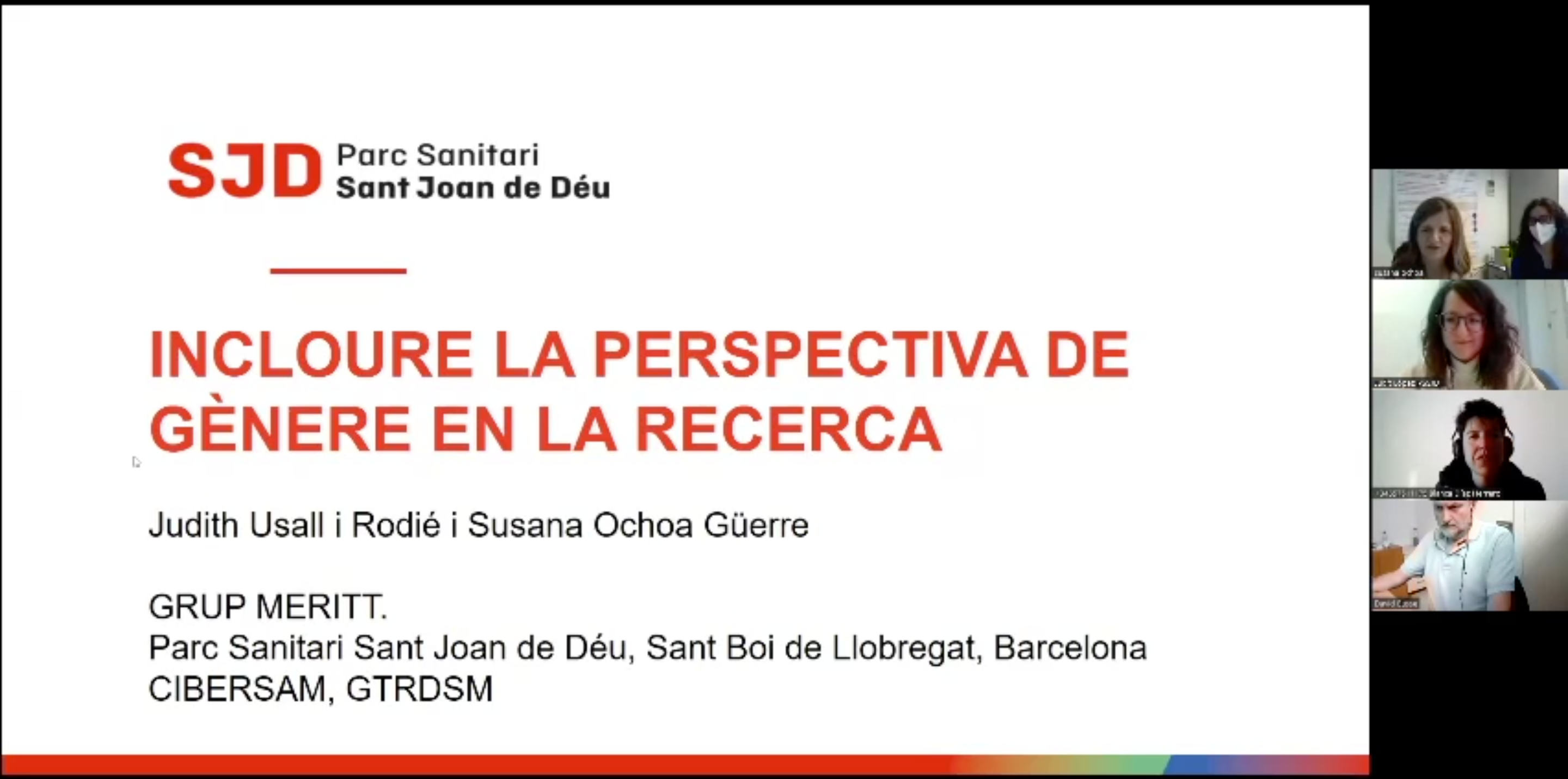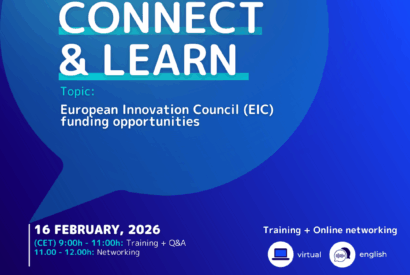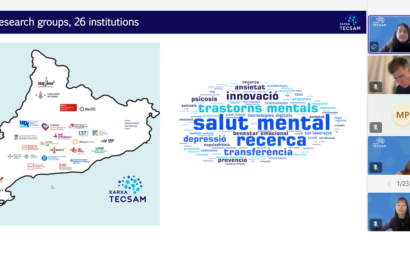[B&L V video]: Practice to include gender perspective in research
Judith Usall and Susana Ochoa, principal researchers of the meritT group (Ethiopatogeny and treatment of severe mental disorders), have shared in practical guidance their knowledge of gender perspective in research during the "Including gender perspective in research".

Judith Usall and Susana Ochoa, principal researchers of the MERITT group (Ethiopatogeny and treatment of severe mental disorders), have shared in practical guidance their knowledge of gender perspective in research during the “Including gender perspective in research” meeting. It is the V Breakfast&Learn, organised by the TECSAM Network, which has been attended by about 60 people.
During the meeting, Usall and Ochoa have revealed the most important concepts in order to ensure fairness and to have results and studies representative of all citizens, including women.
Although it has been discussed since 1991 about the need for a science that takes women into account in the same way as men are included, women still have lower opportunities today. If we look at the figures for the main authorship positions in the publications, women are under-represented. As well as access to relevant positions, access to research funding or in defining a leadership position.
Both researchers have also shared and defended the reason why the lack of gender perspective needs to be corrected, as well as some advice on how to include gender perspective at all stages of research.
During the talk, Mercè Torrentallé, a volunteer and mental health activist from experience, President of the Mental Health Association La Noguera and Vice-President of Obertament, has also contributed her first-person perspective. It has shared relevant aspects that it considers important for people affected by mental health problems such as the lack of information on medication and its side effects. As well as gender issues that have not been taken into account in research and may be relevant to treatment and may not affect some stages through which women pass.
Torrentallé has also emphasized the new technologies and the affections they have on mental health, especially in adolescence.
The Network’s willingness is to start working on documents that allow, on the one hand, to spread gender perspective in research, and also to highlight the mental health problems and women exposed during the talk.
Ochoa and Usall have shared these documents which may be the starting point for reflection and involvement of gender perspective in research design:
– Useful guides:
- Gender in EU-funded research Toolkit
- Guide for non-sexist use of language at the Universitat Autònoma de Barcelona
- Inclusive language in schools and medical and professional associations
– Of the Agency for Quality and Health Evaluation of Catalonia (AQuAS):
- Women’s Advancement and Leadership in the Biomedical Research Centres of Catalonia. The gender vicious cycle (Monographic of SARIS No. 6 – Series on Responsible Research)
- Women’s Advancement and Leadership in the Biomedical Research Centres of Catalonia II. Bringing about change (Monographic of SARIS No. 7 – Series on Responsible Research)
- Center Results of Centres and Research Institutes (where data on gender tissue can be seen)
You can see V Breakfast&Learn again here:
About the Breakfast&Learn
The Breakfast&Learn is a formative initiative dedicated to innovation, valorization and transfer with a special focus on mental health and technology, led by the TECSAM network with the collaboration of the Catalan mental health cluster, Cluster Salut Mental Catalunya (CSMC). These open meetings are expected to be a monthly space where knowledge is shared and synergies and networking are generated, where the speakers will be guests with expertise in the sector, including administration, research, the private sector, as well as users and families.
The meetings will focus on three major thematic areas: Tools for bringing society and research closer together (innovation, marketing, contact with the private sector, business models, spin offs, empowerment of affected and user people…), tools for protecting research results (intellectual protection, patents, other protection models…), and tools for doing research with clinical research (ethical regulatory aspects, medical devices, digital tools, software…). Also, the member groups of the Network can participate as expert speakers or participants at round tables.
In the upcoming weeks, the TECSAM network will confirm the final timetable for these meetings.

